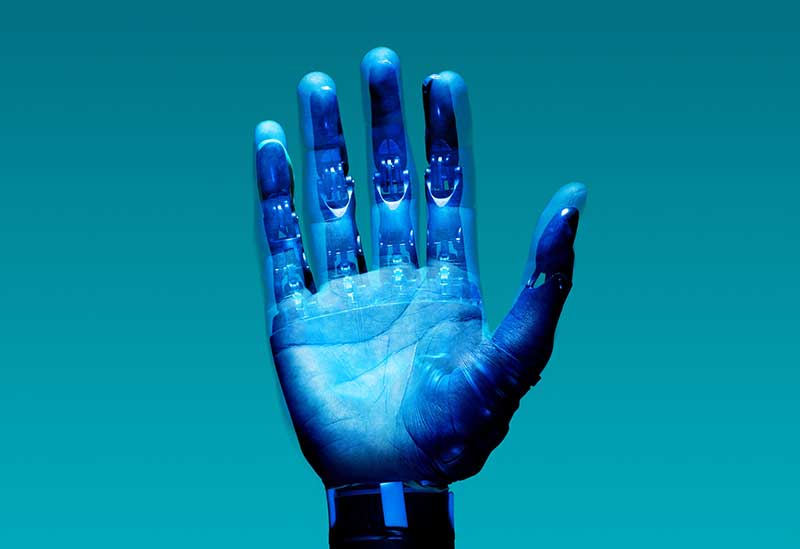
Artificial Intelligence (AI) presents both significant benefits and potential dangers to society. While AI has the potential to revolutionize various aspects of our lives, it is essential to acknowledge and address the risks associated with its development and deployment. Here are the top 13 of the dangers AI poses to our society:
- Job Displacement: One of the primary concerns surrounding AI is the potential loss of jobs. As AI technologies advance, they may replace human workers in various industries, leading to unemployment and economic disruption. It is crucial to consider the impact on the workforce and ensure that reskilling and job creation measures are in place to mitigate these effects.
- Bias and Discrimination: AI systems are trained on existing data, which can contain biases and discriminatory patterns. If not properly addressed, these biases can be perpetuated or amplified by AI algorithms, leading to unfair treatment and discrimination in areas such as hiring, lending, law enforcement, and healthcare. Ensuring fairness, transparency, and accountability in AI algorithms is a critical challenge for society.
- Privacy and Security Risks: AI often relies on vast amounts of personal data to train and improve its models. This creates privacy concerns as sensitive information may be at risk of misuse, unauthorized access, or breaches. Safeguarding personal data and establishing robust security measures are vital to protect individuals’ privacy and prevent malicious uses of AI technology.
- Autonomous Weapons: The development of autonomous weapons systems powered by AI raises significant ethical and security concerns. These weapons could make critical decisions about the use of force without human intervention, potentially leading to unintended consequences, arms races, and the erosion of ethical and legal norms governing warfare.
- Deepfakes and Misinformation: AI can be used to generate highly realistic synthetic media, including deepfake videos and images. This technology poses a risk for the spread of misinformation, fake news, and malicious propaganda, making it increasingly challenging to discern between real and manipulated content. This can have far-reaching consequences for public trust, political stability, and social cohesion.
- Dependence and Unintended Consequences: As AI systems become more integrated into various aspects of society, there is a risk of becoming overly dependent on them. Reliance on AI algorithms without proper understanding or oversight can lead to unintended consequences, errors, and vulnerabilities that may be difficult to predict or rectify.
- Ethical Decision-making: AI systems can be designed to make decisions based on algorithms and data. However, ethical choices often involve complex considerations that are challenging to codify. Developing AI systems that align with human values and ethical principles remains a significant challenge, and the potential for AI to make morally questionable decisions is a concern.
- Lack of Accountability: AI systems can sometimes be opaque and difficult to understand or explain their decision-making process. This lack of transparency can make it challenging to hold AI systems accountable for their actions. If an AI system makes a biased or harmful decision, it can be difficult to identify the responsible party or take appropriate corrective measures.
- Social and Economic Inequality: The widespread adoption of AI can exacerbate existing social and economic inequalities. Access to AI technologies, resources, and expertise may be limited to certain privileged individuals or organizations, creating a “digital divide.” This can further marginalize already disadvantaged communities and widen the gap between the haves and have-nots.
- Manipulation and Surveillance: AI-powered algorithms and systems can be used for manipulation and surveillance purposes. Advertisers, political groups, or malicious actors can exploit AI to manipulate public opinions, influence elections, or invade individuals’ privacy. The misuse of AI technology for surveillance can lead to a loss of personal freedoms and erosion of civil liberties.
- Technological Singularity: While still largely speculative, the concept of technological singularity raises concerns about the future impact of AI. It suggests that AI systems could eventually surpass human intelligence and rapidly advance beyond our control. The implications and consequences of such a scenario are highly uncertain and potentially disruptive to societal structures.
- Environmental Impact: The development and deployment of AI systems require substantial computational power, which in turn requires significant energy consumption. This can contribute to increased carbon emissions and have a negative environmental impact. Ensuring that AI technologies are developed and used in an environmentally sustainable manner is crucial for mitigating these effects.
- Human Dependency and Skills Erosion: Excessive reliance on AI systems and automation can lead to a diminishing of essential human skills. Over time, individuals may become overly dependent on AI for decision-making, problem-solving, or critical thinking, potentially eroding their abilities in these areas. Striking a balance between human capabilities and AI augmentation is important to maintain human agency and expertise.
It is important to note that these dangers are not inherent to AI itself but rather stem from the ways AI is developed, deployed, and regulated. Society must actively engage in ethical discussions, establish appropriate legal frameworks, and promote responsible AI practices to mitigate these risks and ensure that AI technologies are developed and used for the benefit of humanity.
 Our company was established
in 2004.
Our company was established
in 2004.